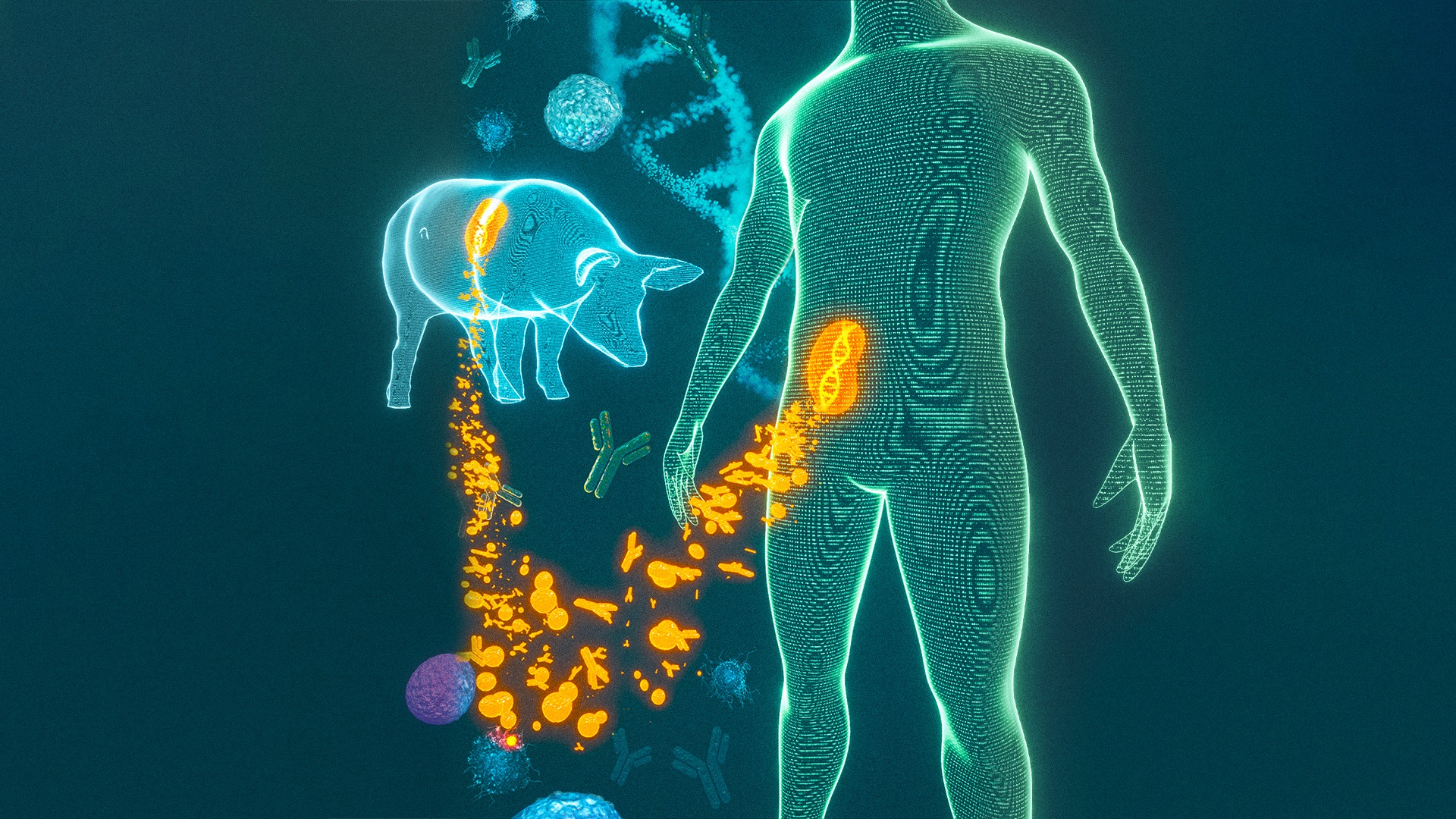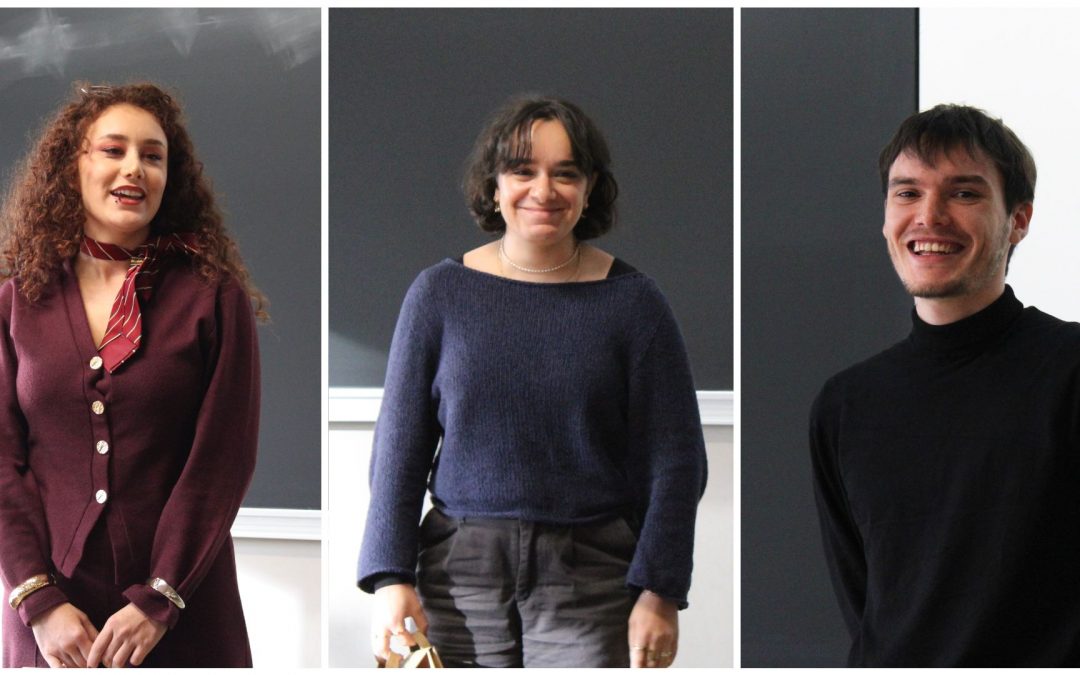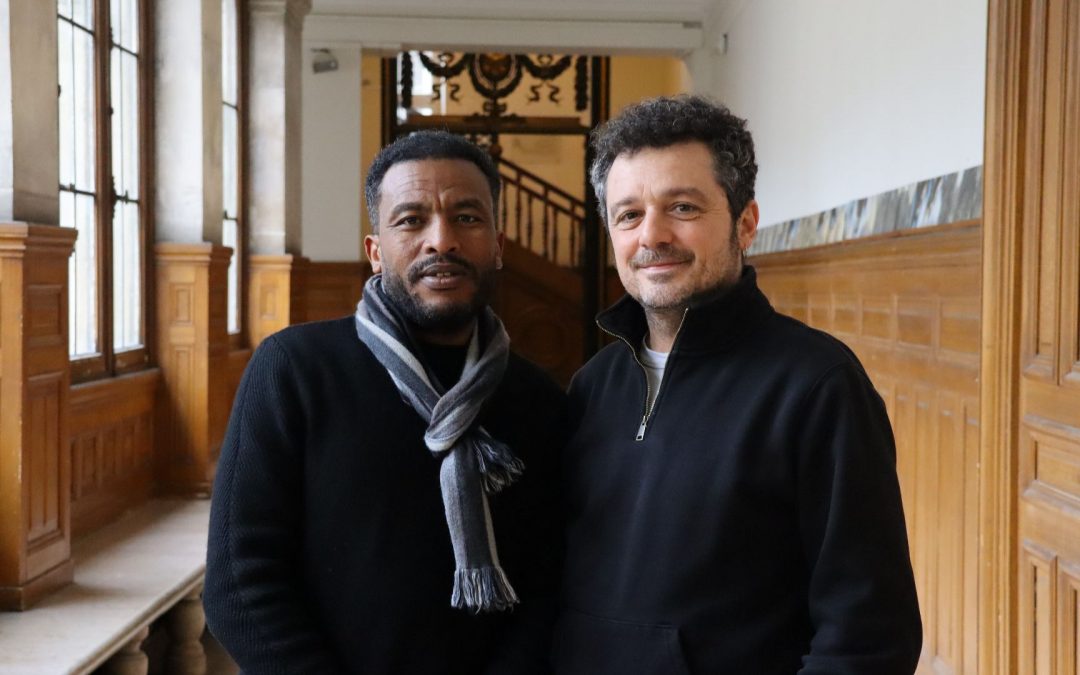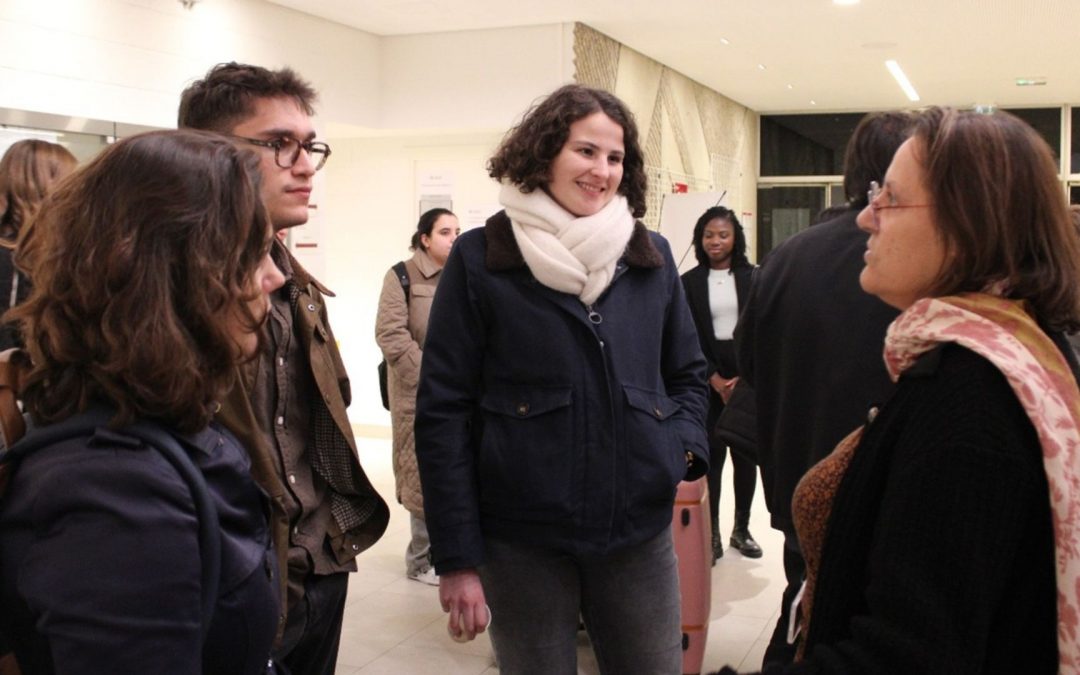Following the success of the first xenotransplantation of a pig kidney into a human patient in August 2023, significant advances have been made thanks to the molecular analyses conducted by the teams at the Paris Institute for Transplantation and Organ Regeneration (PITOR) of Université Paris Cité, led by Professor Alexandre Loupy. PITOR, a European leader in organ transplantation and regeneration, has been selected to host the BANFF 2024 international conference, co-organized by Professors Carmen Lefaucheur and Alexandre Loupy. This conference will mark the establishment of the first BANFF classification for xenograft rejection.

Xénotransplantation
© Alexandre Loupy
The conference will open on September 16, 2024, at the National Academy of Medicine and will continue from September 17 to 20 at the Université Paris Cité headquarters.The inclusion of xenografts in the international BANFF classification is a world first. This classification of graft rejection, based on internationally developed and validated criteria, is a crucial step towards the standardization and advancement of xenotransplantation, a revolutionary practice in medicine.
The PITOR Institute at Université Paris Cité, recognized as a European leader in organ transplantation and regeneration, has been chosen to host this international conference. This event provides a unique opportunity to showcase the excellence of French research and medical innovation.
Global experts in organ transplantation, along with the editors-in-chief of the six leading international scientific journals-The Lancet, The New England Journal of Medicine (NEJM), Journal of the American Society of Nephrology (JASN), Kidney International, American Journal of Transplantation (AJT), and Transplant
International—will be present in Paris from September 16 to 20, 2024. The prestigious venues of the National Academy of Medicine and the headquarters of Université Paris Cité in the heart of Paris will serve as the setting for this major global event.
PITOR – The 29 research units and teams, along with the clinical services gathered within the PITOR Institute (Paris Institute for Transplantation and Organ Regeneration), conduct their research based on four major areas: understanding and treating organ rejection (kidney, heart, lung, liver, pancreas, and composite tissues) by addressing pathophysiological mechanisms to optimize therapeutic management of patients; diagnosis and monitoring by developing innovative tools to transform the care pathway for transplant patients. The institute also focuses on optimizing, allocating, and preserving organs by developing innovative approaches based on artificial intelligence. Finally, part of their work involves regenerative medicine, through the creation of organs, organoids, and organs-on-chips, in order to provide new tools and products to create, refurbish, or replace organ tissues. https://paristransplantgroup.com/
Read more

Graduate School Sustainability, Organisations and Institutions Best Thesis Awards: Celebrating Scientific Excellence in Sustainability
The Graduate School Sustainability, Organisations and Institutions held its traditional awards ceremony for the Best Theses of its students. This distinction highlights the scientific excellence of research devoted to sustainable development and sustainability. Meet...
read more
International Day of Women and Girls in Science: celebrating the women who push research forward
February 11 was the International Day of Women and Girls in Science. On this day, Université Paris Cité reaffirms its commitment to the equality between men and women and celebrates the journey of the women who advance research. Between celebrating our heritage and...
read more
Abraha and Pierre: A Friendship to Preserve the People’s Memory of War
In Paris, two historians’ paths crossed. One had just arrived from Ethiopia, carrying notebooks filled with daily observations written during the war in Tigray. The other, based in France, is a specialist of Ethiopian modern history. From this encounter, a partnership...
read more
“Open UE”: looking back on an interdisciplinary adventure organised by the Cardiovascular Sciences Graduate School
The “open UE”, launched by the Graduate School Cardiovascular Sciences, brought together researchers, clinicians, and experts from diverse fields for a week to explore major issues in biomedical and translational research. Open to all students across the 29 Graduate Schools of Université Paris Cité, it offered a unique space for learning and interdisciplinary exchange.
read more